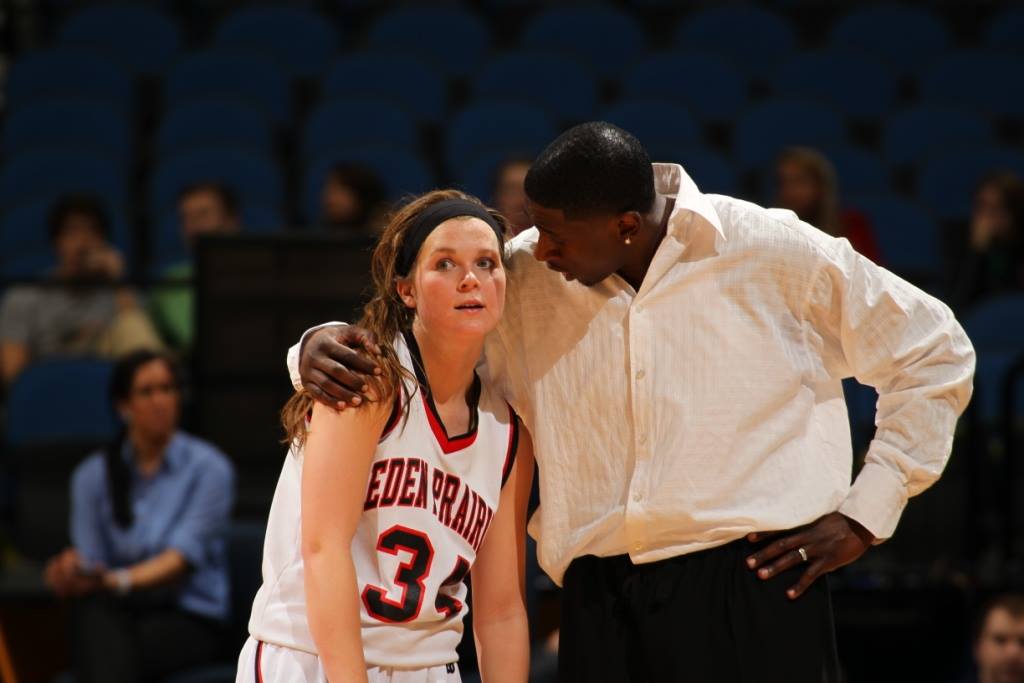
The Courage to Chisel
“The function of education is to teach one to think intensively and to think critically. Intelligence plus character – that is the goal of true education.” Dr. Martin Luther King
Since the beginning of public education, physical activity and athletics have been considered a vital part of public education’s mission to help young people become productive citizens. Have you ever wondered why? Why have sports been seen as a way to ignite the intrinsic drive of young people to be a better version of themselves and a better contributor to society? Why do schools provide students with the opportunity play sports as part of their school experience? Why do schools hire, train and consider coaches part of the educational faculty? The answer is because there is the potential for “something” meaningful and beneficial for students to acquire through their participation and proper coaching. That “something” is often defined as character.
Character. The word comes from the ancient Greek kerikter, which is defined as a “chisel, or stamping tool.” This tool was a sign of craftsmanship involving etching or engraving. It helped define and distinguish the quality of the work. Today, character is defined as the way an individual or team of people acts, thinks and feels. The inward and outward actions of trustworthiness, respect, responsibility, fairness, caring and citizenship are considered foundational to character, productive citizenship and true education. Sports are an integral part of the educational curriculum providing the teacher-coach with countless opportunities to teach, model and develop character. Inscribing character in students is the highest value and most enduring contribution a coach can make.
The character that coaches inscribe in young people comes in two different forms—performance character and moral character. Performance character has to do with one’s relationship to self. These are skills that you would list on a resume and would assist you in defining your ability to perform. Skills such as determination, perseverance, grit, self-control, and responsibility. When asked to identify the benefits that come through sports, these are the skills that are most often communicated. However, performance character is only one part of being a productive employee or citizen. The other and more important part is moral character. Moral character has to do with one’s relationship to other people. These are the skills that others would use to describe and define you at your funeral and are at the level of the heart. Skills such as kindness, honesty, empathy, compassion and moral courage. Moral character skills are crucial traits of human development and evolution towards a more fair and equitable society.
Regrettably, performance character is most often associated with athletics and coaching. Wins and losses, individual goals and personal achievements seem to dominate much of the value and is the focus adults place on the athlete’s mind and effort. The overemphasis on individual performance contributes heavily to the morally toxic social environment of sports today. We must reclaim interscholastic athletics and coaching as a critical time to invest in the moral development of students and their interpersonal competencies. Young people must have caring and supportive relationships with caring adults for healthy character development. Unfortunately, today’s students grow up in a media-driven culture that is often toxic to the development of moral character. The $15 billion youth sports industry and the win-at-all-costs sports culture is playing a lead role in this toxicity. The role of the education-based coach has never been more important than in the current American culture. Character coaching is essential for individual and team success on the field, in life and to create fair and just world.
It takes courage to chisel moral character in the lives of students. Perhaps, the most challenging issue about coaching moral character is that unlike teaching a student to throw a curveball, set a ball or catch a down and out (which are things you can teach without being able to do), the coach must have and display moral character to effectively coach moral character. Character is not something you can teach in a “do as I say, not as I do” fashion. In fact, there are few things more damaging to character development than one who speaks to the importance of character but fails to act with character. Students will not respond well if they feel their coach is a hypocrite.
Character holds a mirror to our souls. Therefore, before you can coach character, you must identify it in yourself. This can only be done through self-reflection. Take time to reflect on the following questions. This reflection time will assist you as you begin to look at your own character, where you learned it and how to most effectively teach it.
- Who are or were the people in your life who taught you the most about performance character (relationship to self)? How did they teach you?
- Who are or were the people in your life who taught you the most about moral character (relationship to others)? How did they teach you?
- What performance/moral character skills are important to you? Why?
- What kind of performance/moral character skills are you modeling? Reflect on your character skills in your transformational purpose statement?
- Do you coach your team to be as character fit as you do physically fit? Why or why not?
Transformational coaches teach what they know best—their own life narrative. Utilize the above coach reflection questions, share your thoughts with your team and then ask your student-athletes to answer the same questions.
“Character is that which reveals moral purpose.” – Aristotle